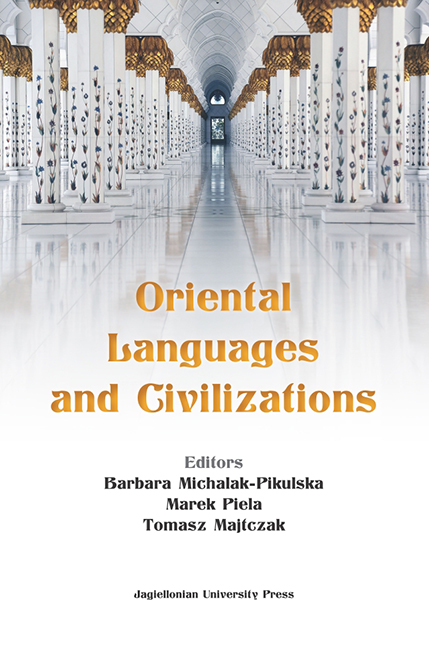Studies in Arabic linguistics at the JagiellonianUniversity in Kraków. Areas of interest and state ofresearch
Published online by Cambridge University Press: 06 November 2021
Summary
Abstract
The article reviews research interests and topics inArabic linguistics at the Jagiellonian UniversityInstitute of Oriental Studies in Kraków, pursuedsince the very beginning of its existence in the20th century until now. It presents thecurrent state of research, including the mostimportant published works of particular authors,which are briefly discussed. They are all theachievements of the “Kraków school” of Arabiclinguistic studies, enjoying high esteem amongspecialists in Oriental studies.
Keywords: Arabic linguistics, Arabic language, Polishresearch in Arabic language
When reviewing the current state and range of researchin Arabic linguistics in Kraków, it is hard not togo back to its beginnings in the 20thcentury. It is widely known that the Orientalstudies in Kraków, which include studies in Arabicliterature, history, culture and, naturally enough,the Arabic language, are rooted in the research ofthe great pioneers of Arabic studies, theoutstanding professors Tadeusz Kowalski (1889–1948)and Tadeusz Lewicki (1906–1992). At the time,however, studies in the Arabic languages were nottreated as a separate discipline and both professorslooked at them as a research tool to map uncharteredareas of literature and history of Arabic countries,the fields in which they were and remain the mostoutstanding experts. From a linguistic point of viewit is professor Lewicki who deserves the highestregard, as he had a foresight to collect andpreserve some dialect texts from North Africa(mostly local dialects of Algeria and Tunis). Thetexts served as the basis of two academic textbookshe compiled: Wypisy do naukijęzyka arabskiego (“Excerpts for learningArabic”) (1954, 1972) and Materiały pomocnicze do nauki językaarabskiego (“Supplemental materials forlearning Arabic”) (1973, 1980), which were used bymany generations of Polish students of Arabic. Itshould be noted that considering the times they werea ground-breaking and extremely useful project – theinterest in Arabic dialects just got off the groundand students had few opportunities to studythem.
However, the aim of the present paper is to present thebeginnings, the course and the current state oflinguistic studies in Kraków in their modernconceptualization, where the Arabic language is nolonger treated as an alien, exotic system full ofpuzzling traps, but as one of many representativesof the Semitic family that can be examined usingmodern methodology, classification and terminologycommon in the field of general linguistics.
- Type
- Chapter
- Information
- Oriental Languages and Civilizations , pp. 257 - 264Publisher: Jagiellonian University PressPrint publication year: 2022

